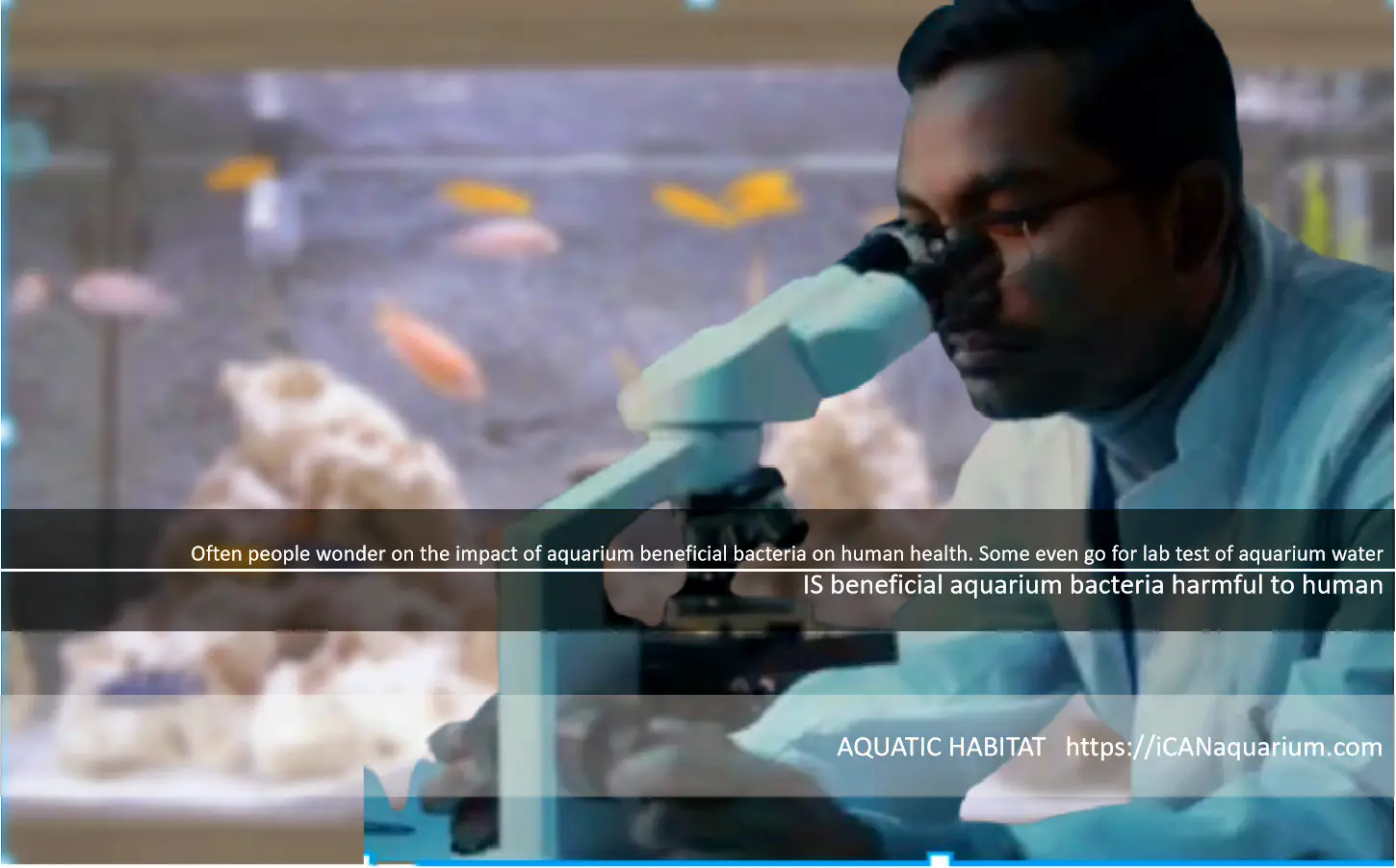Understanding Beneficial Aquarium Bacteria and Their Impact on Human Health – Are beneficial aquarium bacteria harmful to human?
Introduction
Aquarium bacteria play a critical role in maintaining a healthy aquatic environment by breaking down waste, facilitating nitrogen cycling, and ensuring overall ecosystem balance.
The Role of Beneficial Aquarium Bacteria
In aquariums, fish waste and organic matter generate toxic ammonia. Beneficial bacteria, like Nitrosomonas and Nitrospira, convert ammonia into less harmful compounds like nitrite and nitrate through nitrification, detoxifying the water and supporting aquatic life.
Additionally, different bacterial strains contribute to a balanced ecosystem. Ammonia-oxidizing bacteria (AOB) convert ammonia into nitrite, while nitrite-oxidizing bacteria (NOB) further transform it into nitrate. Beneficial heterotrophic bacteria aid in waste decomposition, maintaining ecosystem balance.
Stable bacterial colonies in aquariums establish a balanced nitrogen cycle, converting harmful ammonia and nitrite into less toxic nitrate. Consistent populations ensure optimal water quality, reducing stress on aquatic life and promoting a resilient ecosystem.
Understanding Human Health Concerns and Mitigating Risks: Are beneficial aquarium bacteria harmful to human
Are beneficial aquarium bacteria harmful to human — Let’s explore!
Aquarium bacteria, while largely beneficial, can pose minimal risks:
- Bacterial Infections: Skin contact or ingestion of contaminated water may lead to infections or gastrointestinal issues.
- Allergic Reactions: Some individuals might develop allergies to aquarium bacteria, causing skin or respiratory issues.
- Zoonotic Potential: “Rarely”, bacteria from aquariums may cause zoonotic infections in humans.
- Occupational Risks: Professionals handling aquariums might face increased exposure, requiring proper safety measures.
Role of Beneficial Bacteria in Mitigating Risks
Beneficial bacteria play a role in indirectly but greatly reducing the transmission of diseases from an aquarium to humans. By following certain advisory steps and using specialized beneficial bacterial inputs like OZPOLISH Bio-Cure designed specifically for aquariums, we can help maintain a healthier environment – inside and outside of an aquarium! Negating the ask, “Are beneficial aquarium bacteria harmful to human?”
- Water Quality Maintenance: Properly established bacteria maintain excellent water quality, reducing susceptibility to diseases.
- Balanced Ecosystem: Stable colonies support healthy fish, reducing disease outbreaks within the aquarium, and any such possibilities to people, or other pets and terestrial plants.
- Reduced Pathogen Proliferation: Beneficial bacteria limit the growth of harmful pathogens.
- Proper Aquarium Hygiene: Regular maintenance prevents harmful bacteria buildup.
- Education and Awareness: Educating owners promotes better aquarium management, reducing disease transmission risks.
Conclusion
“Are beneficial aquarium bacteria harmful to human?” is a common query. However, these bacteria are crucial for sustaining aquatic ecosystems. While they generally present minimal risks to human health, following precautions such as maintaining proper hygiene, regular maintenance, and raising awareness greatly reduces potential adverse effects. These bacteria indirectly contribute to a stable and healthy aquarium environment, thus lessening the transmission of pathogens. This ensures a safer setting for both aquatic life and humans.

